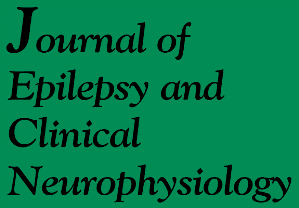RATIONALE: The development of closed-loop devices suitable for use in the treatment of epileptic patients would very likely rely on the adequate development of paradigms able to forecast the occurrence of seizures. In this paper, we studied the usefulness of approximate enthropy, of a non-linear paradigm, in this patient population. METHODS: We applied approximate entropy (ApEn) analysis to study the variability in the complexity of the peri-ictal electrocorticogram (ECoG) of patients with refractory epileptic seizures of the temporal lobe origin. Three patients were implanted with chronic subdural grids. The ApEn algorithm measured the complexity of interictal, peri-ictal and ictal phases. We selected one representative channel disclosing interictal activity for each patient and two channels per patient with ictal recordings. RESULTS: In all patients, we found one channel where the interictal activity registered in the ECoG was associated with high complexity and where ApEn was higher than 0.59. But in the other two channels, for each patient that presented interictal/ictal transitions, clinical manifestations of epileptic seizures occurred around 3.5 seconds after the entropy drop, when entropy was below 0.5. In contrast, when entropy was higher than 0.5, clinical manifestation occurred 9.5 seconds after the entropy drop. The 3.5 seconds shorter delay possibly indicates focal activity in the channel analyzed. CONCLUSIONS: Our results suggest that ApEn may be a useful instrument for early detection of epileptic activity. Its application may be indicated for prevention and diagnosis of epileptic seizures.
approximate entropy; complexity; temporal lobe epilepsy; automatic detection














